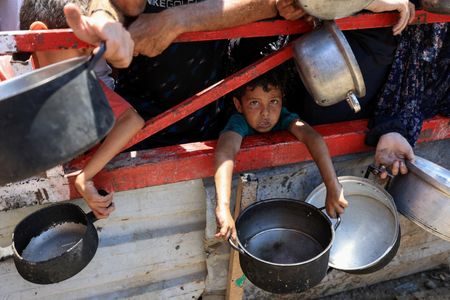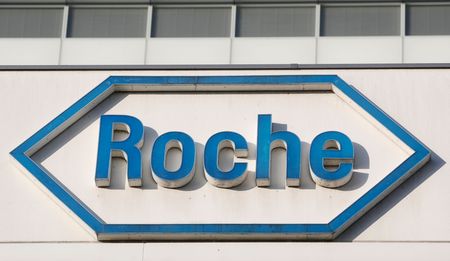By Gleb Stolyarov and Alexander Marrow
(Reuters) -Russia’s largest carmaker Avtovaz said on Tuesday it may cut its working week to four days from five in September, a rare move from a major state-owned employer, as high interest rates and competition from China squeeze its sales.
Avtovaz’s plight mirrors the wider economic downturn facing Russia as growth slows after two years of overheating fuelled by soaring defence spending on the war in Ukraine. Economy Minister Maxim Reshetnikov warned last month that Russia’s economy was on the brink of recession.
Avtovaz, struggling to find enough buyers for its vehicles, said last month that it expects Russians to buy 25% fewer cars this year. Its own sales fell by exactly that amount to 155,481 units in the first six months, according to data provider Autostat.
The company has blamed the central bank’s high interest rate, which reduces appetite for car loans and raises production costs. The bank has also come under fire from firms in other sectors from oil to construction and metals, with steelmaker Severstal the latest to blame plunging profits on high borrowing costs.
After keeping its key rate at a more than 20-year high for several months, the central bank has now started trimming borrowing costs and is widely expected to cut rates by 200 basis points to 18% on Friday.
“We are talking about the high key rate and tougher demands from the regulator for borrowers on car loans,” Avtovaz said in a statement.
The volume of car loans in Russia dropped by 46% in the first half of this year due to a rate hike in late 2024, state-owned bank VTB estimated this month.
“In addition, a significant number of cars have been imported into Russia, with imported brands pursuing a policy of price dumping,” Avtovaz said.
Importers are struggling to sell around 400,000 imported new cars, it said.
STATE SUPPORT
Avtovaz employs more than 30,000 people, mostly in Togliatti, a city on the Volga river 800 km (500 miles) southeast of Moscow, but does not disclose specific numbers.
Avtovaz employs around 1 in 20 people in the city of around 650,000 people. Togliatti’s economy depends heavily on the company and its satellite businesses, which include component suppliers and car dealers in the surrounding region.
The government has bailed out the company before, when weak demand after the 2008 global financial crisis left the Soviet-era carmaker on the cusp of bankruptcy. At that time, it disbursed 75 billion roubles ($955 million) of state funds to avoid significant job cuts that might have sparked social unrest in Togliatti.
The company switched to a four-day work week for three months in 2022 after Western sanctions were imposed over Moscow’s invasion of Ukraine and foreign automakers left the market. Sales of its flagship Lada car dropped by 48.2% to 174,688 units that year.
Russia’s domestic output had relied heavily on foreign producers, and the market slumped in 2022 before the rapid arrival of Chinese carmakers helped revive the sector.
Chinese rivals now account for more than 50% of sales in Russia, up from less than 10% before the war started.
“The final decision about introducing a part-time four-day working week regime will be made following analysis of market trends and economic factors, including the level of the key rate and the availability of credit products,” Avtovaz said.
Should it be implemented, the shortened work week would start in late September.
($1 = 78.5000 roubles)
(Reporting by Gleb Stolyarov; Writing by Alexander Marrow; Editing by Mark Trevelyan)











